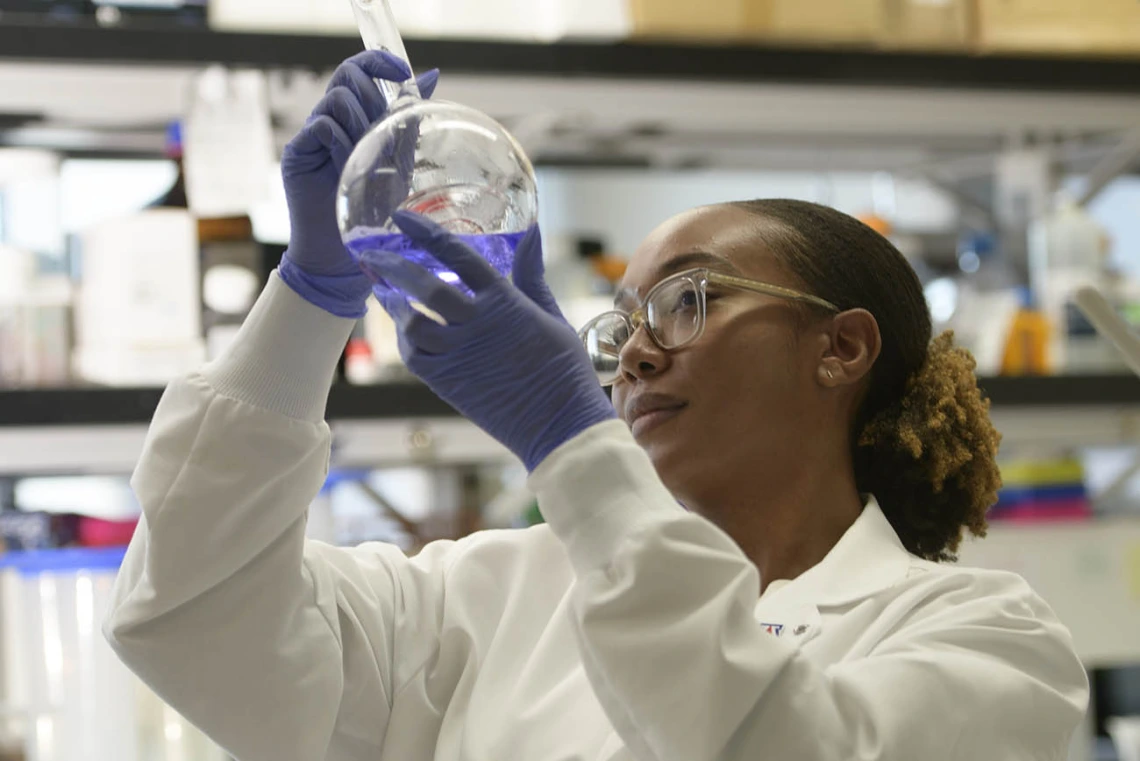UArizona Health Sciences to Expand Education, Research and Workforce Development in 2022
Multiple new health care initiatives will leverage strengths developed during the pandemic and coincide with the academic medical center’s 55th year.

Building on its education, research and public outreach achievements over the past 55 years, including groundbreaking work in response to the COVID-19 pandemic, the University of Arizona Health Sciences is launching several new initiatives in 2022 to address critical statewide, national and global health care needs.
Under its Tomorrow is here focus, UArizona Health Sciences is establishing new research centers and education programs to amplify the impact of its strategic initiatives that are advancing Next-Generation Education, Precision Health Care for All, Innovations in Healthy Aging, Building Defenses Against Disease and New Frontiers for Better Health.
“As one of the leading academic medical centers in the southwestern United States, and building on the strengths we have developed over the course of the pandemic, the University of Arizona Health Sciences has unprecedented opportunities to excel in education, research and outreach in more and better ways than ever before,” said Michael D. Dake, MD, UArizona Health Sciences senior vice president. “Our relentless curiosity, interprofessional collaboration, leading-edge facilities, and purposeful inclusion of diverse perspectives and experiences give us an incredible advantage we can use to improve the health and well-being of people across the state of Arizona and around the world.
“As we commemorate 55 years since the earliest days of the University of Arizona Health Sciences in 1967, we look forward to furthering our mission to educate the next generation of health care professionals, research and solve critical health care problems, and build healthier communities,” Dr. Dake added.
On the education front, UArizona Health Sciences is developing new programs to address ongoing health care workforce shortages in three fields: physician assistant, doctor of physical therapy and certified nurse midwife.
UArizona Health Sciences also is preparing for the launch of two new research centers that will extend the reach of medicine into more precise treatments and another center that will use the knowledge gained from COVID-19 to better prepare for future pandemics.
The Center for Regenerative and Restorative Medicine will focus on developing cell-based technologies that diagnose disease or heal injured tissue.
The Center for Advanced Molecular and Immunological Therapies, to be based at the UArizona Health Sciences campus in Phoenix, will accelerate progress in the late-stage development and commercialization of personalized cell- and gene-based therapies for cancer, autoimmune disease, infectious disease and immune monitoring.
The Aegis Consortium will build partnerships with universities, foundations, nonprofits, governments and industries around the world to address gaps in pandemic preparedness ranging from virology and immunology to communications and policy, behavior, and the built and natural environments.
Three additional UArizona Health Sciences initiatives based in existing colleges and centers are specifically focused on improving health and wellness in Arizona.
The Telehealth Expansion initiative will increase health care access to rural and other underserved communities and provide additional telehealth training opportunities for current and future health care providers.
The Valley Fever Collaborative will connect the state’s three public universities to develop precision medicine approaches to treatment, expand drug and vaccine development, and pursue environmental risk abatement to reduce the financial cost and human burden of Valley fever.
The Arizona Melanoma and Skin Cancer Database initiative will build the only state registry and database of melanoma and non-melanoma skin cancer to better assess and address the full impact of the diseases.
Progress of UArizona Health Sciences’ new and existing education, research and outreach initiatives can be tracked on its Tomorrow is here website.
Contact
Margarita Bauzá
313-520-2109
mbauza@arizona.edu

